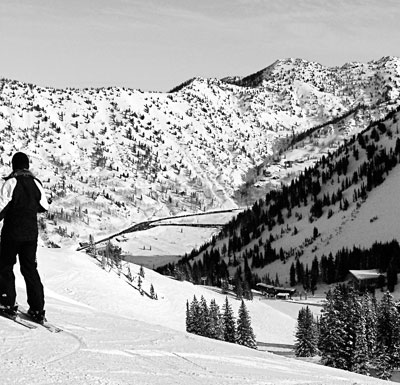All Nonfiction
- Bullying
- Books
- Academic
- Author Interviews
- Celebrity interviews
- College Articles
- College Essays
- Educator of the Year
- Heroes
- Interviews
- Memoir
- Personal Experience
- Sports
- Travel & Culture
All Opinions
- Bullying
- Current Events / Politics
- Discrimination
- Drugs / Alcohol / Smoking
- Entertainment / Celebrities
- Environment
- Love / Relationships
- Movies / Music / TV
- Pop Culture / Trends
- School / College
- Social Issues / Civics
- Spirituality / Religion
- Sports / Hobbies
All Hot Topics
- Bullying
- Community Service
- Environment
- Health
- Letters to the Editor
- Pride & Prejudice
- What Matters
- Back
Summer Guide
- Program Links
- Program Reviews
- Back
College Guide
- College Links
- College Reviews
- College Essays
- College Articles
- Back
Skiing Across the Country MAG
I’m going to tell you a story about a Nordic skier who didn’t end up where she expected. Last winter, she began the season eager to race; her heart was set on going to Junior Nationals. After training and preparing all year, she was confident she’d earn a spot. Everything seemed to be proceeding according to the specialized training formula.
The first sprint went well – fifth place – but she assured herself that things would get better. Turns out, they went downhill. Literally. In the next few races, her skis were inadequately waxed, leaving her powerless against the steep uphill climbs. As the season passed, it seemed like all her races were flukes, irregularities, disasters. One day she was fatigued, the next she was sick, another day her strategy was off, in one race she took a wrong turn.
The confidence in her eyes ebbed as winter slid by. Parents and coaches assuaged her disappointment, saying, “It’s just bad luck,” “That wasn’t an accurate representation of your ability,” and “Soon you’ll have a really good race.” On the outside, she managed a cheerful grin. On the inside, she wondered, What if those races were the true limit of my ability? The air tasted harsh, devoid of hope, leaving her desperate for a victory. At the final competition, she told herself that qualifying for Junior Nationals wasn’t an option; it was the ultimatum determining her self-worth.
She didn’t make it. At first this failure was crushing. When friends approached her, she shrugged and stated, “I did horribly. I guess I’m just a bad skier. I hate racing anyway.” She put her sunglasses on and hid her grief.
She was offered a spot on the alternate trip to Maine, but she felt that she didn’t deserve it. She didn’t want more time and effort wasted on her unsatisfactory results. Luckily, however, her parents and coaches convinced her to go. About two kilometers into the second race, after an uphill climb, she looked out past the trees and saw a magnificent river dividing the U.S. and Canada.
She kept skiing, pushing over into a speedy downhill tuck, but she’d never forget that view. It reminded her of why she is a skier. It’s not for the results; it’s for the sport which literally takes her across the country. The world is imperfect, wild, and confusing. Yet look closer: that’s where the beauty is hidden. It’s a human desire to control one’s life, but as the Chaos Theory says, the only way to obtain order or equilibrium is to be okay with loss of control and unpredictability.
Reevaluating her goals, she saw the order in disorder. Some things paid off and others didn’t, but even if the five kilometer sprint didn’t turn out a win, the effort exerted and the relationships made along the way were still worthwhile.
Thinking of the Junior Nationals trip fills her with a melancholy yearning, a representation of a goal not reached but somehow finished. Sure, she might have had a spectacular experience, but it would have taken her much longer to reflect on why she actually skis. She found that she adores skiing as she adores life; that through all the struggles and triumphs and gilded memories and aspiring dreams, it presents a joy to cherish. She decided to spread her love for skiing – by coaching middle-schoolers and helping the Nordic Rocks for Kids program. And now she sees herself clearly: she is me.
When we try to control our destinies and things don’t go as planned, it first appears to be disorder. I think this is present in almost everyone’s experiences: there’s always a time in life that is chaotic and unpredictable. The irony is that on a grander scale, we still end up where we’re meant to be. It’s all a matter of perspective. We just have to be prepared to handle the circumstances thrown at us, and use them to our advantage. It turns out, the Junior Nationals races took place in California, where there was no snow. Unlike the breath-taking and unmarred trails I skied on in Maine, the racers were left to a one kilometer man-made loop, which was either slushy or icy depending on the day.
Perhaps it’s better to allow Nature to take her course; perhaps true order cannot be forced or created; perhaps, as Einstein once said, “As far as the laws of mathematics refer to reality, they are not certain, and as far as they are certain, they do not refer to reality.”

Similar Articles
JOIN THE DISCUSSION
This article has 0 comments.

Finding Order in Disorder